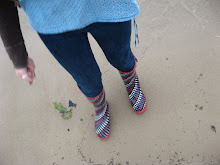 Bundaa Joseph
Bundaa JosephChild's work
Bundaa Joseph, 10, Kampala village, Tanzania
I have no school. I would like to go but I am the only child at home so if I go to school there will be no one to help my parents.
I have to fetch the water. I use the water here for drinking, bathing and washing my clothes. My parents always get sick with diarrhoea - I don't know why - but they have to go to hospital. I'm not happy using this water. Some people use it like a toilet.
(WaterAid/Jane Scobie)
(http://images.google.com/imgres?imgurl=http://news.bbc.co.uk/nol/shared/spl/hi/picture_gallery/05/africa_getting_water_in_africa/img/3.jpg&imgrefurl=http://news.bbc.co.uk/1/shared/spl/hi/picture_gallery/05/africa_getting_water_in_africa/html/3.stm&usg=__gKEn0pZgHLJdpW5M72y95zs29-8=&h=300&w=300&sz=20&hl=en&start=2&sig2=C5OujvPZ11SjfwFeM2GlLA&tbnid=IR2p4nQ-UOWtJM:&tbnh=116&tbnw=116&ei=nXccSemiJ6X8NOrQhd0J&prev=/images%3Fq%3DWater%2Bin%2BAfrica%26gbv%3D2%26hl%3Den%26safe%3Doff)
Water problems are the biggest in South Africa, the strain has even lead into violence across borders and even domestic. In Côte D'Ivoire where government problems led to an unpaid water bill and the cause later was the increase risk of water-born diseases such as cholera. Only 22 percent to 34 percent of the population in at least eight sub-Saharan countries are able to have access to safe water.

According to the Council on Foreign Relations:
"What is the role of agriculture in water stress?
Agricultural development has the potential to improve African economies but requires extensive water supplies. These statistics from the Water Systems Analysis Group at the Institute for the Study of Earth, Oceans, and Space at the University of New Hampshire reveal the urgent need for sustainable agricultural development:
About 64 percent of Africans rely on water that is limited and highly variable;
Croplands inhabit the driest regions of Africa where some 40 percent of the irrigated land is unsustainable;
Roughly 25 percent of Africa's population suffers from water stress;
Nearly 13 percent of the population in Africa experiences drought-related stress once each generation."

96 percent of Agriculture in Africa is rain fed which causes a big dilemma. With the resource of water being low and with the little resource of that polluted with germs, the state of Africa is in what is called "Water Stress."

Over 80 of Africa's river and lak basins are shared by two or more countires and those countries heavily depend on those resources, threatening the native livelihood.

According to the Living Waters Pamphlet:
"Almost half of the population (778 million in 1997) suffers from one of
the six major water-related diseases. Lack of risk preparedness and
mitigation is also a factor: in Mozambique over 1 million people were
displaced by the floods of 1999/2000 and an unknown number killed.
Every day, 650 people die from diarrhoea in Africa, mainly children
under five years of age. More than 10,000 people contracted cholera
during outbreaks in South Africa in 2001."
Africa is home to about 13% (800 million
people) of the world population and accounts
for about 2% of world economic output.
• About 29% of the population lives in West Africa, 27% in
East Africa, 18% in North Africa, 17% in Southern Africa,
and 10% in Central Africa. North Africa is the most urbanised
region in Africa, while East Africa is the least urbanised.
• Overall, the agricultural and mining sectors employ the largest
numbers of Africans. Around two-thirds of Southern Africa’s
population is dependent on agriculture for employment.
• Vast desert and densely forested regions are nearly uninhabited, while
population density is very high in places like Nigeria, the Nile River valley,
and the Great Lakes region. Two of the largest cities in the world – Cairo
and Lagos – are in Africa.
• Estimates of the number of languages range from 700 to 3,000. Major
languages, in terms of the number of speakers, include Afrikaans, Akan,
Amharic, Arabic, English, French, Fufulde, Hausa, Igbo, Malagasy,
Oromo, Portuguese, Rwanda, Shona, Somali, Sotho, Swahili, Xhosa,
Yoruba and Zulu.
Source: US Department of Energy http://www.eia.doe.gov/emeu/cabs/africa.html
 Bundaa Joseph
Bundaa JosephChild's work
Bundaa Joseph, 10, Kampala village, Tanzania
I have no school. I would like to go but I am the only child at home so if I go to school there will be no one to help my parents.
I have to fetch the water. I use the water here for drinking, bathing and washing my clothes. My parents always get sick with diarrhoea - I don't know why - but they have to go to hospital. I'm not happy using this water. Some people use it like a toilet.
(WaterAid/Jane Scobie)
(http://images.google.com/imgres?imgurl=http://news.bbc.co.uk/nol/shared/spl/hi/picture_gallery/05/africa_getting_water_in_africa/img/3.jpg&imgrefurl=http://news.bbc.co.uk/1/shared/spl/hi/picture_gallery/05/africa_getting_water_in_africa/html/3.stm&usg=__gKEn0pZgHLJdpW5M72y95zs29-8=&h=300&w=300&sz=20&hl=en&start=2&sig2=C5OujvPZ11SjfwFeM2GlLA&tbnid=IR2p4nQ-UOWtJM:&tbnh=116&tbnw=116&ei=nXccSemiJ6X8NOrQhd0J&prev=/images%3Fq%3DWater%2Bin%2BAfrica%26gbv%3D2%26hl%3Den%26safe%3Doff)

1 comment:
thaaaaaat water is disgusting
Post a Comment